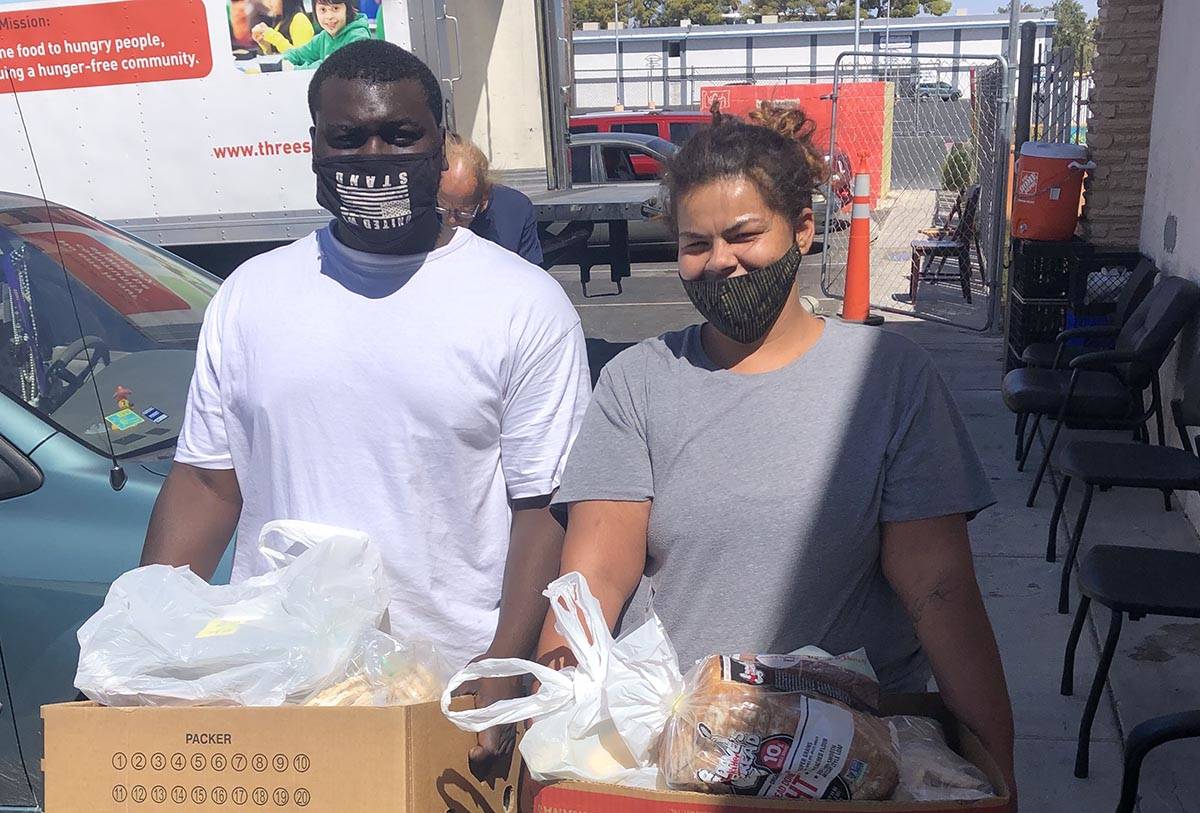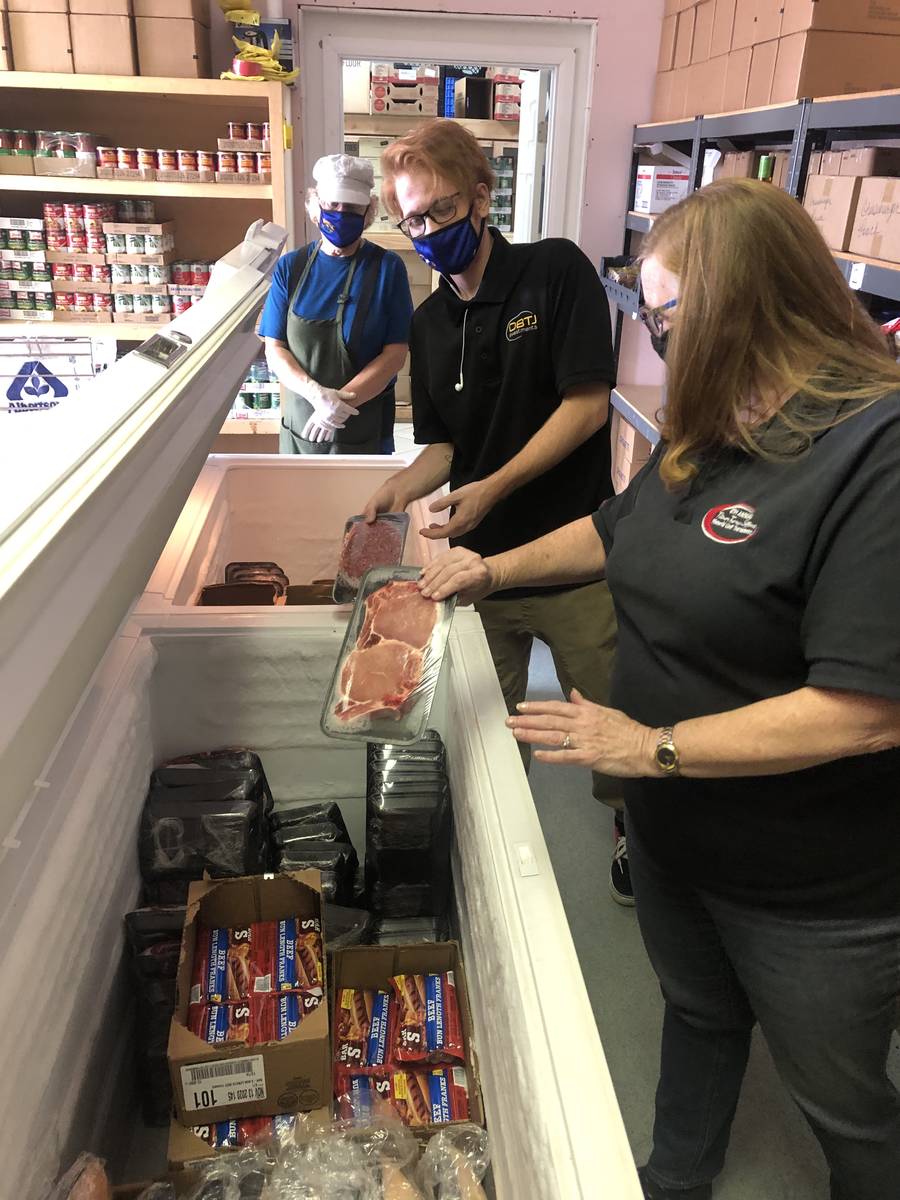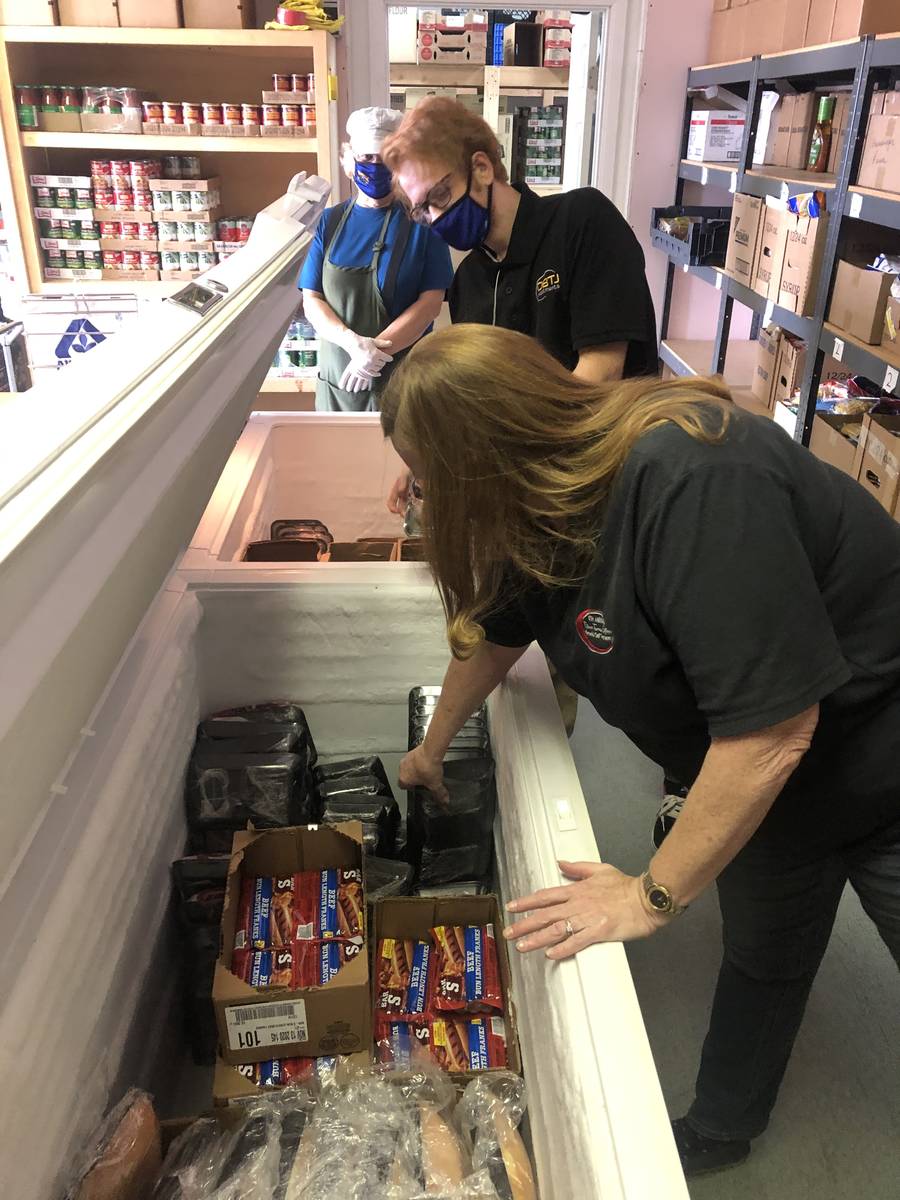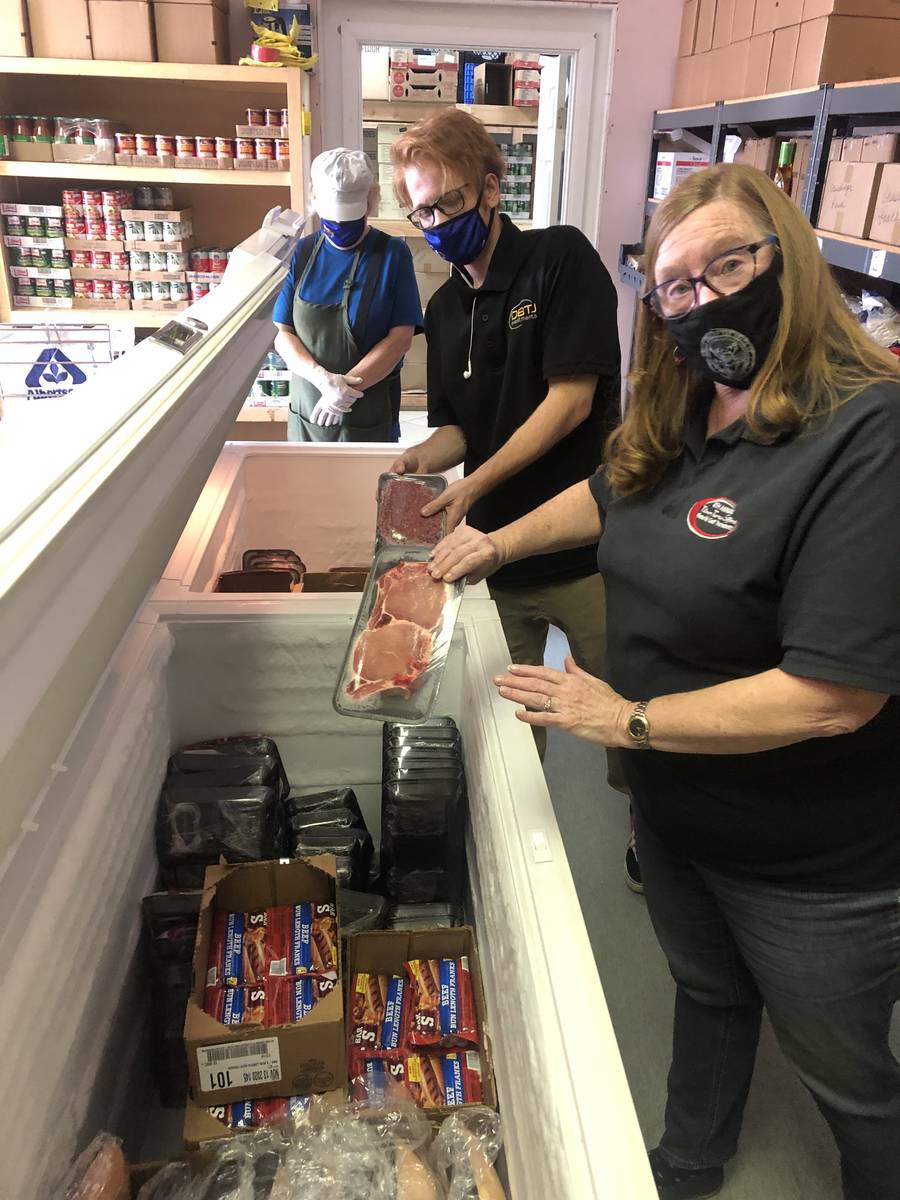Food pantries see new faces during pandemic
As Lekarrie Evans and his girlfriend Lache Campbell each carried a box of food out of City Impact’s food pantry last week, they knew it wouldn’t solve all of their problems.
But they were certain that knowing where their next meal was coming from wasn’t going to be one of them.
“It’s very important to have services like this,” Evans said. “People are out of jobs and are struggling to get unemployment, and they need to eat. This is a great opportunity for people to get what they need.”
Evans and Campbell are among a multitude of people who are turning to food pantries for the first time during the COVID-19 pandemic. Evans said he and Campbell, who have been in a relationship for about a year and a half, recently moved to Las Vegas from the Bay Area in California, and he has struggled to get unemployment benefits.
He now has a job as a security guard at Securitas Security Services USA, but there’s still catch-up to be done.
“It seems they don’t want to give people the money they’re supposed to have, and we’ve got to pay rent. We’ve got to pay bills,” Evans said. “Food is necessary, and it’s scarce. I’m starving right now.”
He’s far from alone.
When the pandemic shut down the country in March, it was particularly hard on states like Nevada that depend on tourism. Unemployment affected more than a quarter of the workforce, numbers not seen since the Great Depression, and sent people scrambling to make ends meet.
Las Vegas is slowly reopening and people are going back to work, and those who need assistance from food pantries aren’t facing the dystopian reality of lines that stretch for miles and hours of waiting in blazing triple-digit temperatures.
Food insecurity abounds
But there’s still plenty of food-insecure people who need the services that food pantries provide.
City Impact’s food pantry director Daniel Granstrom estimates it provides food to 100 to 300 families per day. That number is usually lower early in the month and rises as more people’s benefits from the Supplemental Nutrition Assistance Program (SNAP) dry up.
United Labor Agency of Nevada doesn’t deal with the volume that City Impact does, as executive director Maggie Carlton estimates it sees 30 to 35 families per day. That number can rise to as many as 50 during its busiest times with lines around the sidewalk in both directions from its location in the center of a strip mall.
Victor and Cecila Ortiz visited ULAN on Wednesday, with Victor saying the food was for his wife, who lives in an apartment community for retirees.
Most food pantries in the valley allow people to come in once a month. Some let them take as much as their vehicle can handle, while at others the aid is intended to fill in gaps, not to last a whole month.
Asked if they felt they had enough food for a month, Evans and Campbell nodded and said, “Oh yeah. There’s a lot of burgers and stuff in there. That’s going to be plenty.”
Like 2008 Great Recession
City Impact Center director Vic Caruso said what he’s seen during the pandemic is reminiscent of what he saw when he started there in 2008 during the Great Recession.
“These are couples who had two incomes and two savings. All of a sudden, they lose their jobs, quickly blow through their savings, and they need assistance and struggle to come get it. A lot of people don’t reach out because of pride or they don’t know where to get help.”
Evans and Campbell were happy they sought out the help.
“It’s great. The energy and the vibe were upbeat and positive,” Evans said. “And it was pretty quick. This was our first time so they had to do the initial processing, but even that was fast. Don’t be nervous about coming in if you really need help. If you need food, come and get it. They’re here to help.”
Contact Jason Orts at jorts@reviewjournal.com or 702-387-2936. Follow @SportsWithOrts on Twitter.


























